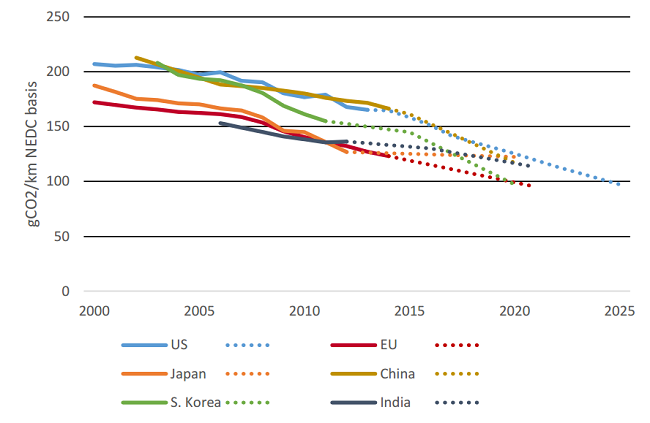The Nissan Leaf electric vehicle. Image via Nissan
The expansion of electric vehicles (EVs) in the UK could have a drastic effect on the economy by cutting fuel imports by 40pc and saving drivers stg£13bn in fuel bills, new research suggests.
While looking specifically at the UK, the research undertaken by Cambridge Econometrics (CE) and commissioned by the European Climate Foundation shows that if an EV infrastructure and the number of vehicles were to increase substantially, the demand for fossil fuels could plummet.
According to their figures, the average UK driver could save as much as stg£1,000 per year on fuel costs and could potentially cut the country’s carbon emissions by almost half (47pc) by 2030.
If this were to continue until 2050, the figure could rise to as high as 80pc, causing an indirect knock-on effect where the UK’s annual costs on health due to carbon emissions could be cut by as much as stg£1.3bn per year.

The world’s largest producers of carbon emissions are expected to see significant reductions in the coming years. Screenshot via Cambridge Econometrics (CE)
Perhaps most interestingly, the report delves into the possibilities of turning EVs into mobile battery supplies for the home that would not just store energy during an outage which could be used in the EV owner’s home, but could also be used to ease pressure on the wider energy grid, and even contribute to it.
As the report briefing states, the expansion of EVs could be incredibly costly if done without due care, but if properly managed, could provide a major boon to the economy.
“If poorly managed, the shift to EVs would necessitate a costly increase in the capacity needed for generation, transmission and distribution,” says the report.
“But if handled smartly, electric vehicles could avoid high peaks in demand at certain times and provide services to the grid, for example by helping utilities manage network overloads, voltage levels, frequency of electricity and imbalances between supply and demand. Electric vehicles could also help soak up surplus renewable energy at times of peak supply.”
In financial terms, this could benefit the British economy by generating as much as stg£1bn by 2050.